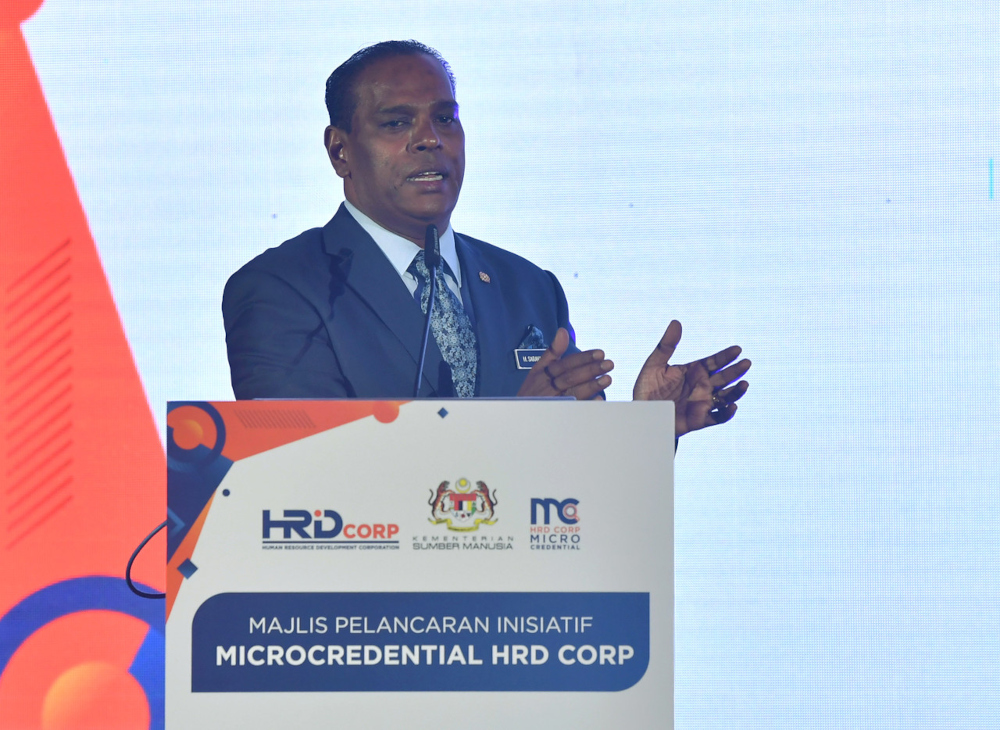PUTRAJAYA, April 13 — Several employment sectors, including the informal sector, will be given flexibility when the implementation of the RM1,500 minimum wage rate comes into effect on May 1, said Human Resources Minister, Datuk Seri M Saravanan.
Among them are those earning income by doing odd jobs, companies employing less than five workers and those that are facing huge losses like the hospitality and tourism sectors, he said.
Saravanan said by emphasising similar flexibility given when the minimum wage order was implemented in 2012, the government would also give a period of one year of flexibility for any party in need and it could be extended according to the minister’s purview.
“Odd-job workers are still earning RM500 to RM600 salary. If I force companies to pay them RM1,500 they will soon be out of a job,” he said to reporters at the launch of the Microcredential HRD Corp initiative here today.
On March 19, Prime Minister Datuk Seri Ismail Sabri Yaakob, announced that Malaysia will implement the RM1,500 minimum wage starting May 1 nationwide.
According to Saravanan, the implementation of the minimum wage rate is in line with the National Wage Consultative Council Act 2011 (Act 732), which needs to be reviewed once every two years.
“If not now, when? The Act (Act 732) stipulates that it needs to be reviewed once every two years. If I don’t do it, people will criticise me, that I violate the Act,” he said.
On the Microcredential HRD Corp initiative, Saravanan said that it serves as a conduit between institutions of higher learning and industry in Malaysia. We are targeting to offer 50,000 micro qualification training places to Malaysians by the end of this year (2022).
He also said more than three million micro training placements will be offered in the next five years.
Microcredential HRD Corp was introduced to enable individuals who attend short courses to be professionally recognised and evaluated, based on their key knowledge, skills and attitudes.
It is a short course that focuses on specific professional skills based on industry needs and recognised by employers.
Previously, it was reported that the Higher Education Minister Datuk Seri Noraini Ahmad, said that micro-certification courses paved the way for greater academic accreditation, depending on the credit transfer policy at institutes of higher learning and existing professional qualification bodies.
“I am confident that, with the initiative, it will help solve incompatibility issues between existing human resource expertise and the demands by employers, the industry and the labour market in Malaysia,” Saravanan said.
More details on the initiative can be found at https://hrdcorp.gov.my/ms/microcredential-bm/. — Bernama



















